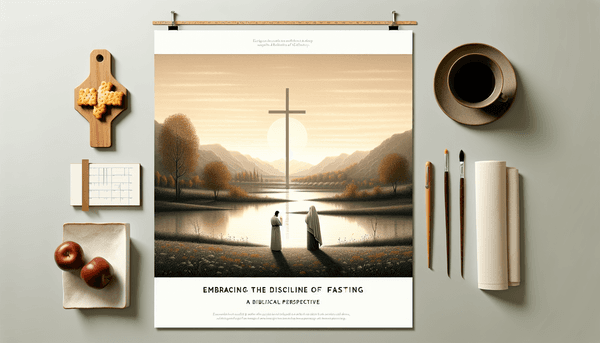Discerning the Impact of Secular Music on Your Relationship with God
Music has a powerful influence on our emotions and thoughts, and as such, it's vital to consider the messages we absorb through the songs we listen to. In the spirit of 'whatever you do, do all to the glory of God' (1 Corinthians 10:31), we must reflect on whether our music choices align with our Christian values. Does the content of the music encourage thoughts and attitudes that honor God? Philippians 4:8 urges us to dwell on whatever is true, noble, right, pure, lovely, admirable, excellent, or praiseworthy. We should seek music that uplifts and edifies rather than that which might lead us away from the path that God has set before us. In moments of uncertainty, the book of James reminds us to ask God for wisdom (James 1:5), a practice that is as pertinent to our music selection as it is to any other aspect of life.
Spiritual Growth and Serving Others in Academic Pursuits
For those called to serve through medicine or any other career, academic challenges become opportunities to live out one's faith. The Bible teaches us that our gifts are varied but all are given for the common good (1 Corinthians 12:4-7), encouraging us to use our unique abilities in service to others. Each test, each study session, is a chance to persevere and to consider our studies as an act of worship and service. When we feel overwhelmed, we can find strength in verses like James 1:5, which assures us that God provides wisdom liberally to all who ask. Our academic journey, much like our spiritual journey, is not meant to be walked alone. Supporting and encouraging our peers, we become a living testament to the love and compassion of Christ, shining His light (Matthew 5:16) within our academic communities.
Conclusion
As we reflect on the various ways our choices intersect with our spiritual lives, let us be encouraged to seek God's guidance consistently. Whether it's the music we listen to, the careers we pursue, or the lessons we learn from Biblical figures, every aspect of our lives offers an opportunity to grow closer to God. May we be inspired to ask for wisdom and discernment as we strive to make decisions that glorify Him and edify those around us. May our paths be marked by a deepening of faith and a strengthening of our relationship with the One who calls us His own.
FAQ
Q: How can I discern the impact of my choices on my relationship with God?
A: Discerning the impact of our choices on our relationship with God requires reflection, prayer, and seeking guidance from the Holy Spirit. Consider the messages of the music you listen to, the motives behind your career ambitions, and the influence of Biblical teachings in your life. Ask for wisdom (James 1:5) and seek counsel from spiritual leaders or mentors.
Q: Can you listen to secular music as a Christian?
A: Listening to secular music as a Christian is a matter of personal discernment. Reflect on the lyrics and their alignment with your faith and values. Seek music that edifies and encourages positive thoughts and attitudes, in accordance with Philippians 4:8.
Q: What does it mean to 'do all to the glory of God'?
A: To 'do all to the glory of God' (1 Corinthians 10:31) means that our actions, including the entertainment we consume and the careers we pursue, should honor God and reflect our faith. Our choices should demonstrate our commitment to God and positively influence our relationship with Him and others.
Q: How can I initiate a conversation on the Word?
A: Initiating a conversation on the Word can start with sharing your personal experiences and insights from the Bible. Be open, ask questions, and listen actively. Encourage others to explore Scripture together, fostering a spirit of unity and growth in understanding.






